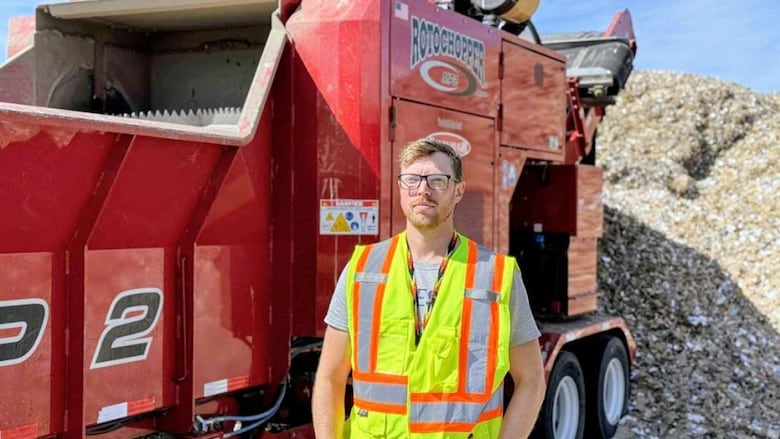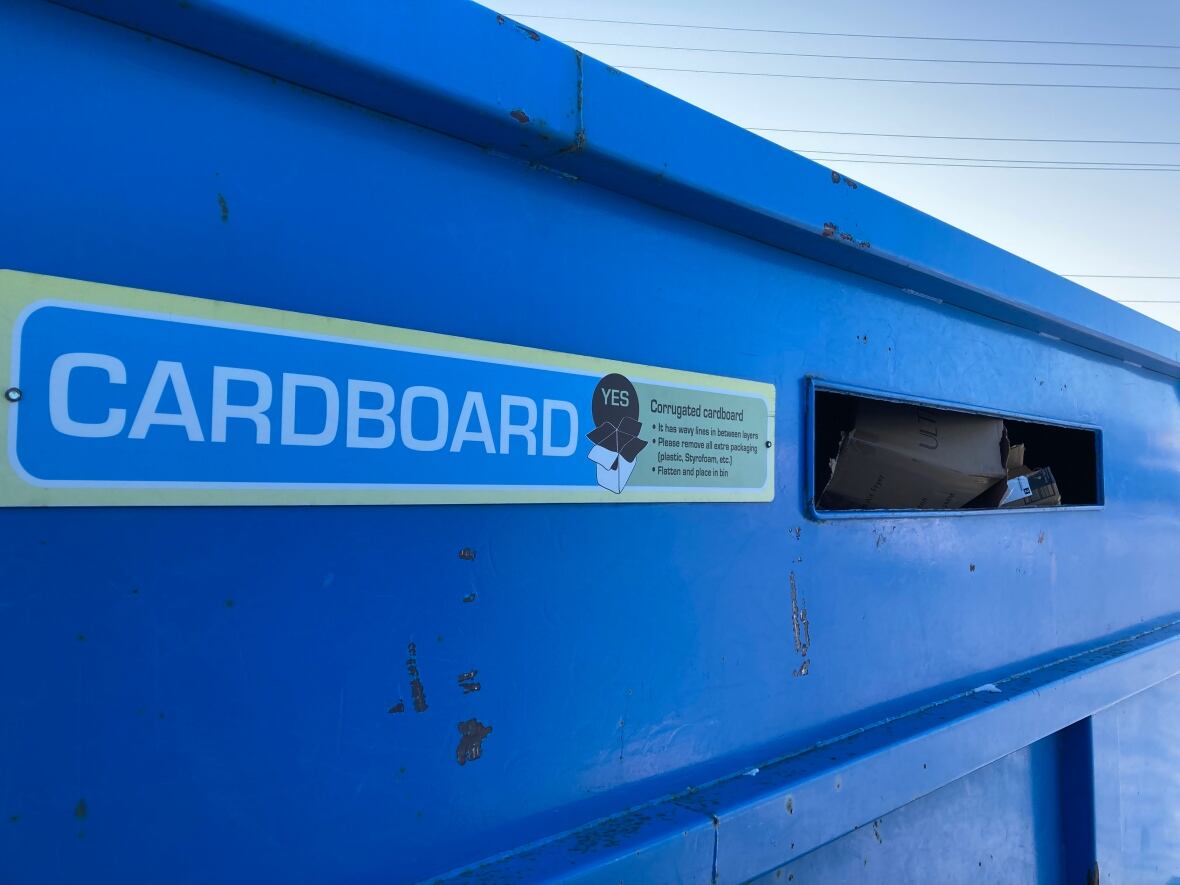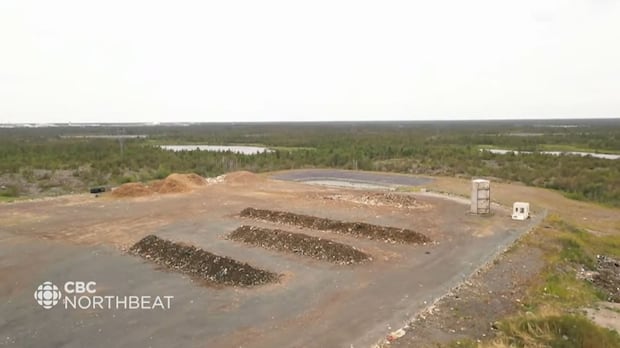Cardboard to the compost? Yellowknife diverting nearly all recycled paper products
City says cardboard accounts for about 95 per cent of the weight of blue bin recycling

This summer, almost none of the cardboard and paper Yellowknifers put into city blue bins will be recycled – instead, it will be composted.
"Cardboard is a great addition to compost because it's got a lot of carbon material. It's also dry, and that just gives the compost a bit of energy as well as some structure," said David Watling, Yellowknife's waste management planner.
"Lots of people who backyard compost know that shredded paper is an excellent amendment. So we're just doing the same thing but on a much bigger scale."
Since mid-June the city has been putting all its recycled cardboard into a giant shredder and stockpiling it to add to organic matter in the compost. It's a temporary program to test the feasiblity of using a shredder to manage cardboard for compost, said Watling.
He said that shredding cardboard for compost was done in previous years, but not on as large a scale as what's happening now.

The city gets about 120 tonnes of old corrugated cardboard per month, and about 30 tonnes of boxboard and paper, said Watling. Over the last 45 days, 161 tonnes of shredded paper products have been diverted away from the landfill.
To put these figures in the context of recycling overall, Watling said cardboard accounts for about 95 per cent of the weight of blue bin recycling.
The city is also composting cardboard from school dumpsters, restaurants and other businesses.
Compost is itself a method of recycling, said Watling: "composting is the way you can harness the power of life to turn old waste into something that's reusable."
Microbes, bacteria, fungi and little bugs in compost eat food waste and convert the energy in those carbon materials to heat, Watling explained. That heat works to clean, in a sense, the compost by reducing pathogens and killing weed seeds.
The final product is useful far beyond the garden.
It can be used in mine and forest remediation, said Watling, or for landfill cover because it's able to absorb methane, a potent greenhouse gas released by municipal garbage dumps.
"It's kind of a magical substance, in my opinion," he said.
Cardboard recycled in Yellowknife used to be compressed into blocks and shipped south, but the city's baler broke down sometime in the last few years, so the shipments stopped, said Watling.
Now, diverting that cardboard to the compost will save valuable space at the landfill.
"If you think about how much airspace we were using just for cardboard, it's many Olympic pools' worth, essentially, every year," he said.
New landfills aren't cheap, said Watling. Composting saves tax dollars by reducing waste management costs.

While it's OK to put small amounts of cardboard into the compost at home, Watling recommends that residents continue taking most of their cardboard and paper to city blue bins, as a lot of paper stuffed into the green bin will hinder the composting process.
"It's really me up there and maybe some assistants trying to pull out the contaminants by hand," he said. "So we definitely advise people to keep any plastics, metals or animal waste out of their compost bin and use it mostly for food scraps, soiled napkins and yard waste."
